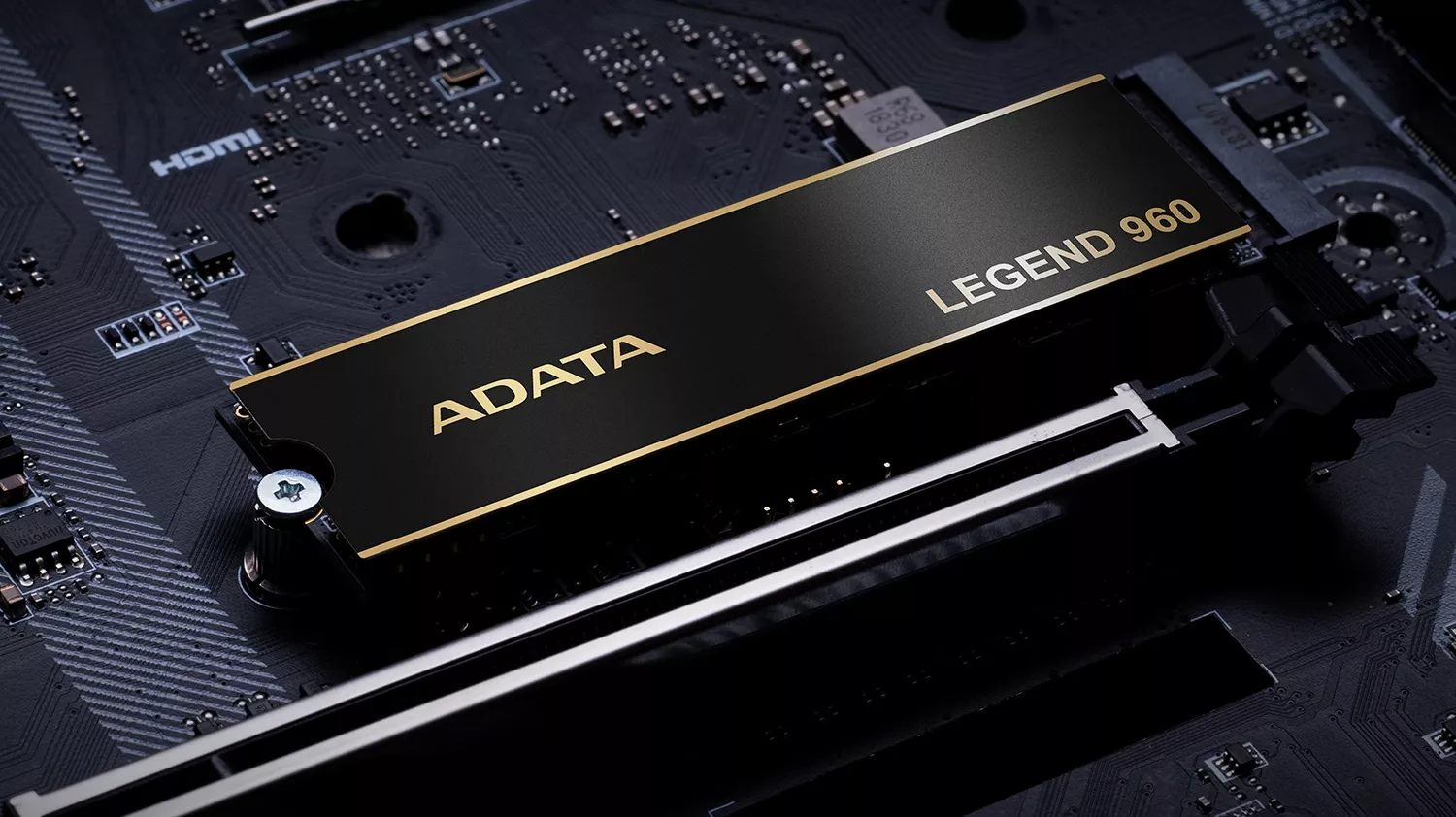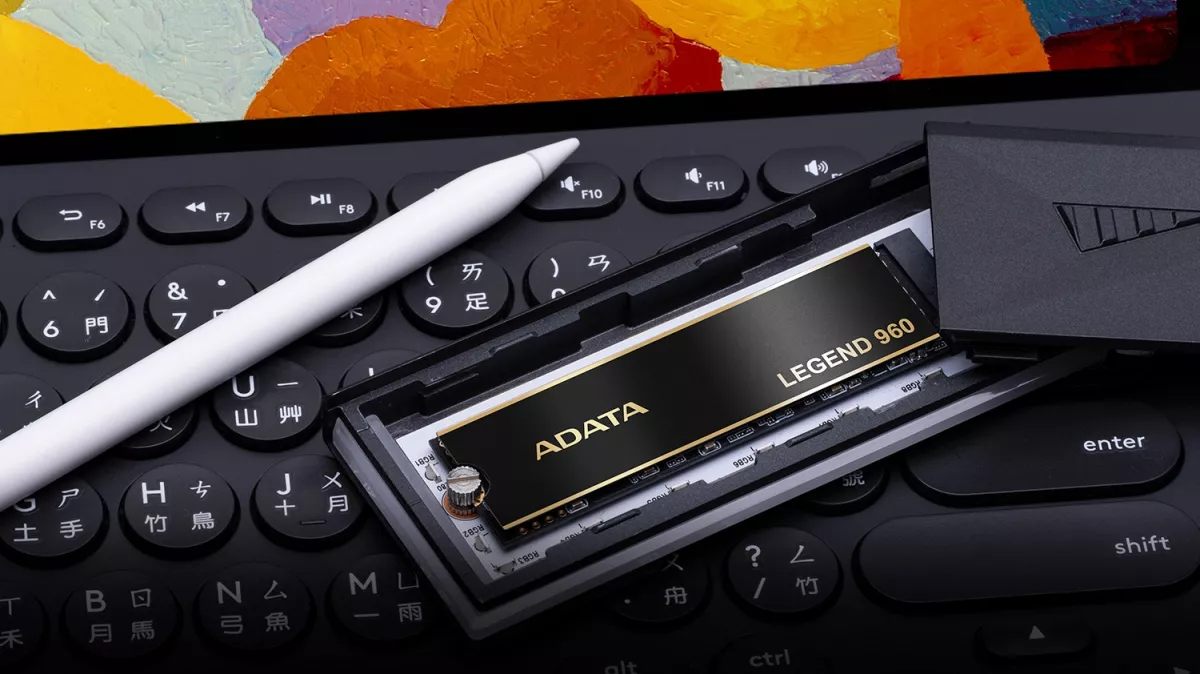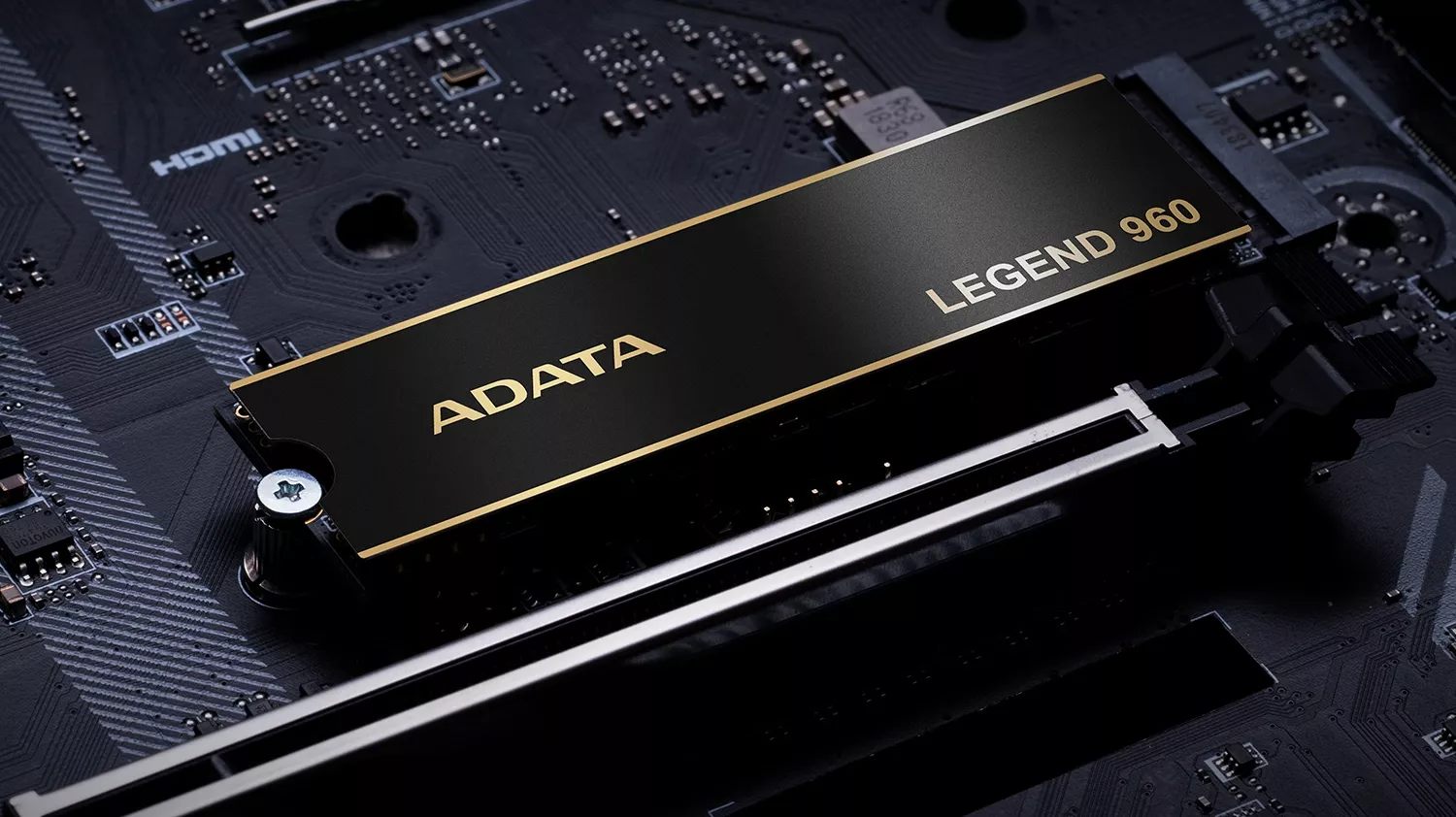While PCIe 5.0 SSDs loom on the horizon, there is still a vast market for PCIe 4.0 devices. With this in mind, Adata today announced its latest PCIe 4.0 SSD, the Legend 960.

Adata says the Legend 960 is designed for content creators, but it will also suit your gaming system thanks to its rated sequential read/write speeds of 7400 MB/s and 6800 MB/s, respectively. Most recent high-performance SSDs are approaching the maximum use of the PCIe 4.0 interface, and the Legend 960 is no exception. Random read/write 4K is rated at 750K and 630K IOPS, respectively. The SSD uses a Silicon Motion SM2264 controller. Adata claims a 1,560 terabyte write endurance rating and an average MTBF of 2 million hours. The SSD also comes with a 5-year warranty.
It should be noted that while the Legend 960 is likely to appear on PCs, it is also compatible with the Sony PlayStation 5. Because of the SSD’s low-profile heatsink and performance that easily meets Sony’s minimum requirements, DIY enthusiasts can use the Legend 960 to expand their storage for today’s best AAA games. However, Adata notes that the maximum read speed is 6,400 Mbps (instead of 7,400 Mbps) when using the Legend 960 on the PlayStation 5.

The Adata Legend 960 will be available in 1TB and 2TB capacities in stores in the coming days. In addition, Adata confirms that a 4TB SKU is also in development and will arrive later this month. Unfortunately, pricing information is not available for either SKU at this time.
Earlier this year at CES 2022, Adata showed off its next-generation PCIe 5.0 SSDs: the Project Nighthawk, which will use the Silicon Motion SM2508 controller, and the Project Blackbird with InnoGrit IG5666. Project Nighthawk promises sequential read/write speeds of up to 14Gbps/12Gbps, while Project Blackbird is rated at 14Gbps/10Gbps. The SSDs, which will be available in capacities up to 8TB, will also reportedly have a 50 to 80 percent increase in random I/O operations per second over existing PCIe 4.0 SSDs. Of course, this will require the Intel Alder Lake or AMD Zen 4 platform to get PCIe 5.0 support.
